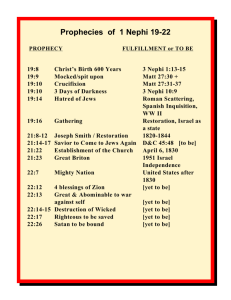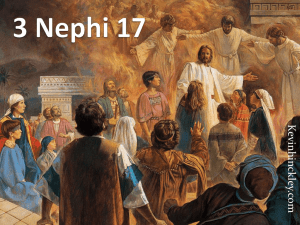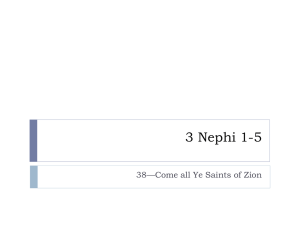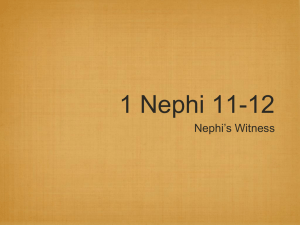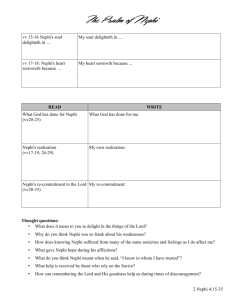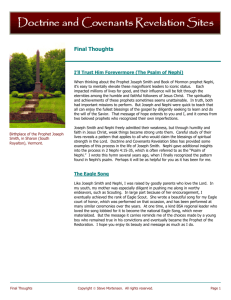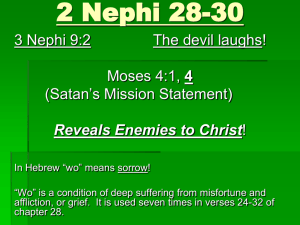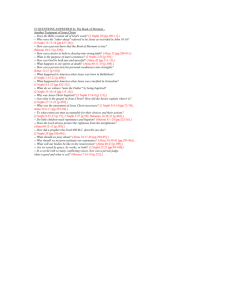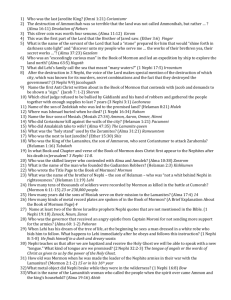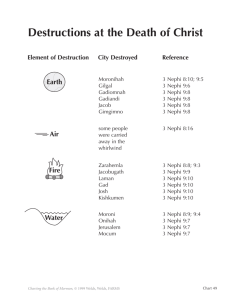The Costs and Limits of Obedience
advertisement
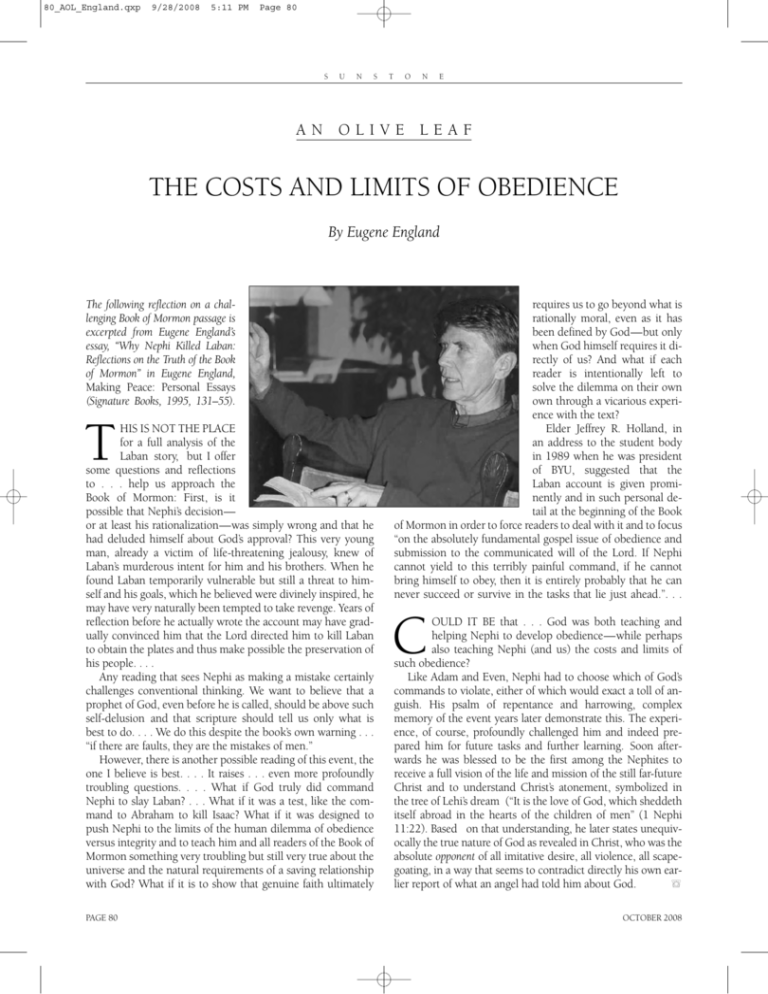
80_AOL_England.qxp 9/28/2008 5:11 PM Page 80 S U N S T O N E AN OLIVE LEAF THE COSTS AND LIMITS OF OBEDIENCE By Eugene England The following reflection on a challenging Book of Mormon passage is excerpted from Eugene England’s essay, “Why Nephi Killed Laban: Reflections on the Truth of the Book of Mormon” in Eugene England, Making Peace: Personal Essays (Signature Books, 1995, 131–55). T HIS IS NOT THE PLACE for a full analysis of the Laban story, but I offer some questions and reflections to . . . help us approach the Book of Mormon: First, is it possible that Nephi’s decision— or at least his rationalization—was simply wrong and that he had deluded himself about God’s approval? This very young man, already a victim of life-threatening jealousy, knew of Laban’s murderous intent for him and his brothers. When he found Laban temporarily vulnerable but still a threat to himself and his goals, which he believed were divinely inspired, he may have very naturally been tempted to take revenge. Years of reflection before he actually wrote the account may have gradually convinced him that the Lord directed him to kill Laban to obtain the plates and thus make possible the preservation of his people. . . . Any reading that sees Nephi as making a mistake certainly challenges conventional thinking. We want to believe that a prophet of God, even before he is called, should be above such self-delusion and that scripture should tell us only what is best to do. . . . We do this despite the book’s own warning . . . “if there are faults, they are the mistakes of men.” However, there is another possible reading of this event, the one I believe is best. . . . It raises . . . even more profoundly troubling questions. . . . What if God truly did command Nephi to slay Laban? . . . What if it was a test, like the command to Abraham to kill Isaac? What if it was designed to push Nephi to the limits of the human dilemma of obedience versus integrity and to teach him and all readers of the Book of Mormon something very troubling but still very true about the universe and the natural requirements of a saving relationship with God? What if it is to show that genuine faith ultimately PAGE 80 requires us to go beyond what is rationally moral, even as it has been defined by God—but only when God himself requires it directly of us? And what if each reader is intentionally left to solve the dilemma on their own own through a vicarious experience with the text? Elder Jeffrey R. Holland, in an address to the student body in 1989 when he was president of BYU, suggested that the Laban account is given prominently and in such personal detail at the beginning of the Book of Mormon in order to force readers to deal with it and to focus “on the absolutely fundamental gospel issue of obedience and submission to the communicated will of the Lord. If Nephi cannot yield to this terribly painful command, if he cannot bring himself to obey, then it is entirely probably that he can never succeed or survive in the tasks that lie just ahead.”. . . C OULD IT BE that . . . God was both teaching and helping Nephi to develop obedience—while perhaps also teaching Nephi (and us) the costs and limits of such obedience? Like Adam and Even, Nephi had to choose which of God’s commands to violate, either of which would exact a toll of anguish. His psalm of repentance and harrowing, complex memory of the event years later demonstrate this. The experience, of course, profoundly challenged him and indeed prepared him for future tasks and further learning. Soon afterwards he was blessed to be the first among the Nephites to receive a full vision of the life and mission of the still far-future Christ and to understand Christ’s atonement, symbolized in the tree of Lehi’s dream (“It is the love of God, which sheddeth itself abroad in the hearts of the children of men” (1 Nephi 11:22). Based on that understanding, he later states unequivocally the true nature of God as revealed in Christ, who was the absolute opponent of all imitative desire, all violence, all scapegoating, in a way that seems to contradict directly his own earlier report of what an angel had told him about God. OCTOBER 2008
